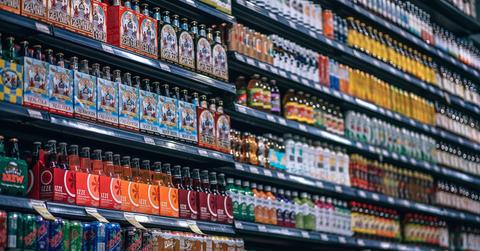Iceland Supermarket Announces Ban On Palm Oil In All Store-Brand Items
Appalled by the devastation caused to communities and rainforests by palm oil production, one big company has decided to put their foot down.
Updated May 20 2019, 4:50 p.m. ET
One of the U.K.'s biggest supermarket chains, Iceland Foods, announced the end of palm oil in any of their store-brand products. The BBC reports that the chain was brought around by consistent campaigning from Greenpeace organizers, who alerted the company to the devastating effects of palm oil production in South East Asia.
The process has been linked to terrible air pollution, deforestation, and the destruction of habitats for wild animals, like orangutans. According to The Guardian, Bornean orangutan numbers declined in half between 1999 and 2015. For perspective, this means there are now between 70,000 and 100,000 remaining. Indonesia has also become the fourth largest greenhouse gas emissions contributor in the wold, a problem largely associated with the deforestation necessary to create palm oil acres.
Developers have also displaced entire communities by taking over their land, allegedly without consultation or reparations. Though they looked for a solution, Iceland's managing director Richard Walker said the possibility of a "sustainable" palm oil just doesn't exist.
"Certified sustainable palm oil does not currently limit deforestation and it does not currently limit the growth of palm oil plantations," he said. "So until such a time as there is genuinely sustainable palm oil that contains zero deforestation, we are saying no to palm oil."
The company is currently fielding questions from confused customers on what the ban will mean for their favorite products and shopping experience. One important question Walker cleared up was a matter of cost. There will be expenses involved in the process of eliminating palm oil, but that cost would not be passed to customers; it will be absorbed by the company.
"There will be an extra cost but we think it's the right thing to do," he said.
Though palm oil production is known as a serious environmental problem in activist circles, there isn't much public awareness of the issue. In a U.K. survey, a third of the people questioned didn't know what palm oil is. However, it appears in about 71 percent of processed food products, 24 percent of consumer goods, and is used as a biofuel. Once informed, 85 percent of consumers said they did not want palm oil in their food products.
So far, Iceland Foods says they've replaced palm oil in 50 percent of their store-brand products that contain it and are tinkering with recipes for the rest. They do warn that they are not discontinuing the sale of all products that contain palm oil, only those made in-house. But Iceland Foods specializes in frozen and prepared foods, so they're overhauling quite a lot—and signaling to other food producers that a serious change needs to be made everywhere.
